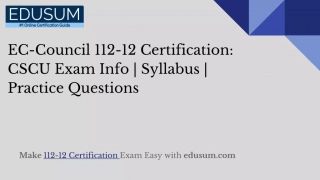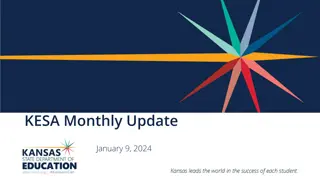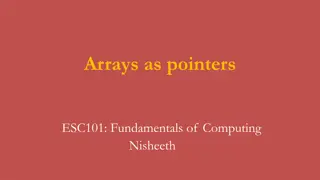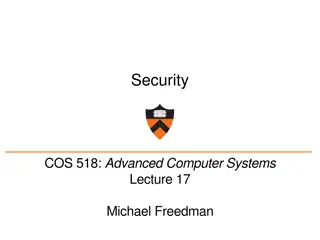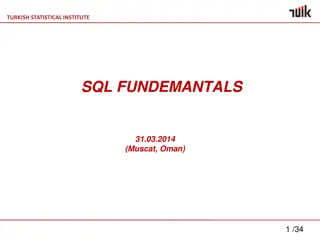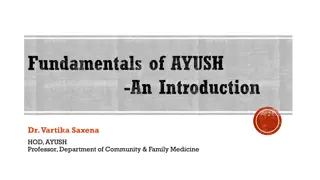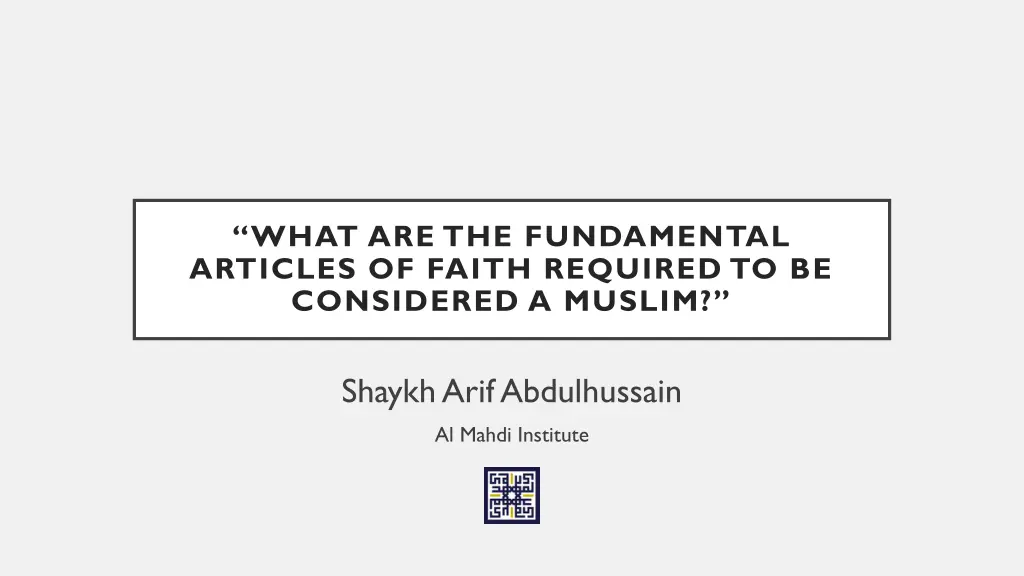
Understanding the Fundamental Articles of Faith in Islam
Explore the essential articles of faith required to be considered a Muslim, including primary and secondary beliefs like Tawhid, Nabuwa, Risalah, and Qiyamah. Learn about the principles of salvation outlined in the Quran for believers.
Uploaded on | 0 Views
Download Presentation

Please find below an Image/Link to download the presentation.
The content on the website is provided AS IS for your information and personal use only. It may not be sold, licensed, or shared on other websites without obtaining consent from the author. If you encounter any issues during the download, it is possible that the publisher has removed the file from their server.
You are allowed to download the files provided on this website for personal or commercial use, subject to the condition that they are used lawfully. All files are the property of their respective owners.
The content on the website is provided AS IS for your information and personal use only. It may not be sold, licensed, or shared on other websites without obtaining consent from the author.
E N D
Presentation Transcript
WHAT ARE THE FUNDAMENTAL ARTICLES OF FAITH REQUIRED TO BE CONSIDERED A MUSLIM? Shaykh Arif Abdulhussain Al Mahdi Institute
CLARIFICATION OF TERMS Aq da-What needs to be believed in Ilm al Kal m- Scholastic Theology D n- Revealed system of concepts and practice U l Fundamentals of Aqida Fur - Practices or Ahkam Arkan- Mixture of Aqida and Ahkam
TECHNICAL DEFINITIONS U l al-d n Those articles of Din that must be rationally ascertained directly or indirectly and in which imitation is not allowed.. The foundations of Din upon which it's practise is based Fur al-d n Practices of faith where imitation is allowed.Those elements of Din that are built upon the Usul 1 - 2 -
FURTHER CLASSIFICATIONS U l al-d n Primary Secondary
Primary Tawhid Nabuwa- Risalah Qiyamah Secondary- Bada Raj'a Angels Scriptures Imama
FURTHER CLASSIFICATIONS U l al-d n Undetailed ( ) Detailed ) (
Undetailed means accepting mere existence such as the existence of one God without the requirement as to how He is One in His Essence and Attributes. Or acceptance of the Revelation without understanding it's nature as eternal or temporal Detailed means a thorough understanding of the articles of faith in terms of their nature
PRIMARY UN-DETAILED PRINCIPLES OF SALVATION FROM THE QURAN 1. Faith in Allah ( ) and being a good doer ( ) Certainly, whoever submits his will to Allah and is virtuous, he shall have his reward from his Lord [2:112] Who has a better call than him who summons to Allah and acts righteously and says, Indeed I am one of the Muslims ? [41:33]
PRINCIPLES OF SALVATION 2. Faith in Allah and the last day ( ) and performance of righteous deeds ( ) Indeed the faithful, the Jews, the Christians and the Sabaeans those of them who have faith in Allah and the Last Day and act righteously they shall have their reward from their Lord, and they will have no fear, nor will they grieve. [2:62]
PRINCIPLES OF SALVATION Belief in the unity of God - Rational Belief in the Prophethood - Rational Belief in Hereafter Textual and indirectly Rational
UL AL-DIN AL ISLM The acceptance and acknowledgment of the primary minimum tenets of faith in an undetailed manner that qualify an individual as belonging to the faith and religion of Islam
IMAMI SCHOLARS WHAT MAKES ONE A MUSLIM 1st Group 1. Belief in unity of Allah ( ) 2. Belief in the Prophet Muhammad Both are rational in essence since otherwise it would lead to circularity
IMAMI SCHOLARS WHAT MAKES ONE A MUSLIM 1st Group Verse Say, O People of the Book! Come to a common word between us and you: that we will worship no one but Allah, that we will not ascribe any partner to Him, and that some of us will not take some others as lords besides Allah. But if they turn away, say, Be witnesses that we have submitted [to Allah]. [3:64]
IMAMI SCHOLARS WHAT MAKES ONE A MUSLIM 1st Group Verse O Prophet! If faithful women come to you, to take the oath of allegiance to you, [pledging] that they shall not ascribe any partners to Allah, that they shall not steal, nor commit adultery, nor kill their children, nor utter any slander that they may have intentionally fabricated, nor disobey you in what is right, then accept their allegiance, and plead for them to Allah for forgiveness. Indeed Allah is all- forgiving, all-merciful [60:12]
IMAMI SCHOLARS WHAT MAKES ONE A MUSLIM 1st Group Verse So have faith in Allah and His apostles; and if you are faithful and Godwary, there shall be a great reward for you[3:179]
IMAMI SCHOLARS WHAT MAKES ONE A MUSLIM 1st Group Verse They say, We have faith in Allah and His Apostle, and we obey. Then, after that, a part of them refuse to comply, and they do not have faith.[24:47]
IMAMI SCHOLARS WHAT MAKES ONE A MUSLIM 1st Group Hadith : - ... [Kafi vol 2 page 514]
IMAMI SCHOLARS WHAT MAKES ONE A MUSLIM 1st Group Scholars Sayyid Khomeini Kitab al- Tahara vol 3 page 445 Shahid Sadr Buhuth fi Sharh al-Urwat al-Wuthqa vol. 3 p295 Sayyid al Hakim Mustamsak al-Urwat al Wuthqa Sayyid Sabzawari Muhadhab al Ahkam
IMAMI SCHOLARS WHAT MAKES ONE A MUSLIM 2nd Group 1. Belief in the Unity of Allah 2. Belief in the Prophet Muhammad 3. Belief in the Hereafter Here the belief in Qiyama is indirectly rational
IMAMI SCHOLARS WHAT MAKES ONE A MUSLIM 2nd Group Verse and it is not lawful for them to conceal what Allah has created in their wombs if they believe in Allah and the Last Day; [2:228]
IMAMI SCHOLARS WHAT MAKES ONE A MUSLIM 2nd Group Verse Herewith are advised those of you who believe in Allah and the Last Day.[2:232]
IMAMI SCHOLARS WHAT MAKES ONE A MUSLIM 2nd Group Verse Among the people are those who say, We have faith in Allah and the Last Day, but they have no faith.[2:8]
IMAMI SCHOLARS WHAT MAKES ONE A MUSLIM 2nd Group Scholars Shaykh Muhammad Husayn Kashif al Ghita Usul al Shia wa Asluha pg 57 Sayyid al-Khui al-Tanqih fi al-Urwat al-Wuthqa vol 3. pg 53
RESULTS OF ABOVE VIEWS 1. Undetailed categorisation of u l allows inclusion of various opinions e.g. on differences in understanding of free will & predestination, eternality and temporality of God s word 2. Denial of dharuriyat within Furu only if it is tantamount to rejection of revelation would be a non-qualification of Islam
USUL AL-MADHAB AL-IMAMIYA What would categorise one as a Shia
PRIMARY UNDETAILED USUL AL- MADHAB AL-IMAMIYA 1st Group 1. Belief in unity of Allah 2. Belief in the justice of Allah 3. Belief in the prophet Muhammad 4. Belief in Imama 5. Belief in Qiyama
PRIMARY UNDETAILED USUL AL- MADHAB AL-IMAMIYA 2ndGroup 1. Belief in unity of Allah 2. Belief in the prophet Muhammad 3. Belief in Imama 4. Belief in Qiyama
PRIMARY UNDETAILED USUL AL- MADHAB AL-IMAMIYA 3rdGroup 1. Belief in unity of Allah 2. Belief in the prophet Muhammad 3. Belief in Imama
Scholars like Allamah al-Khui are of the opinion that Imama is from the Furu' al- Din All Shia scholars agree that not believing in Imama does not make a person Kafir as opposed to dental of Tawhid, Risala of the Prophet Muhammad and some say denial of Qiyama also takes a person out of Islam Finally a group of scholars make a distinction between apparent Islam and the essence of Islam where apparent Islam is ascertained by belief Tawhid and Risala while the essence of Islam requires belief in Wilaya of the Imams This is possibly due to a narration from the 6th Imam al-Sadiq in which he talks of the Arkan of Islam as Tawhid, Salah, Zakat, Sawm, Haj and Wilaya where Wilaya is interpreted to mean the authority of the Prophet Muhammad and after him the authority of the Imams

